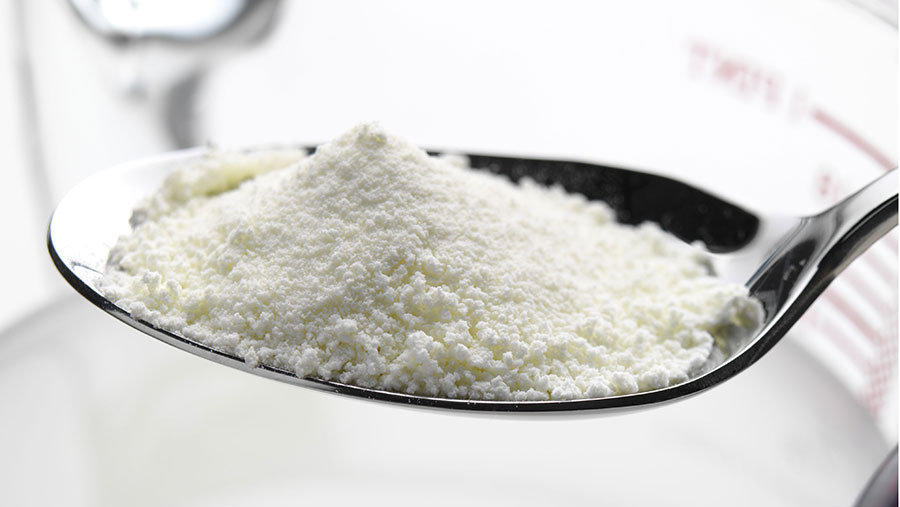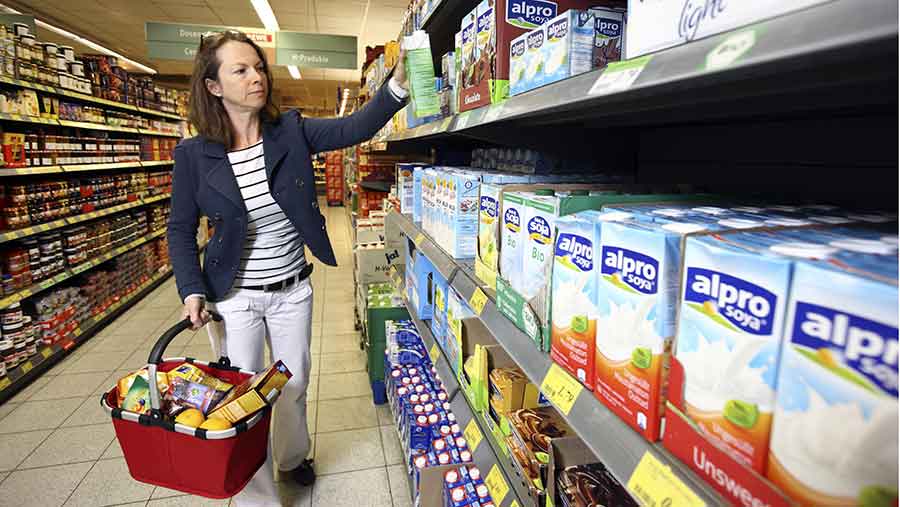While you were away… dairy round-up
 © Food and Drink/Rex Shutterstock
© Food and Drink/Rex Shutterstock GDT falls for a second auction in a row
The Global Dairy Trade Index, an indicator of market sentiment, fell to its lowest level for two months after a 3.9% drop in the price index.
The fall, only the second since October, was driven largely by a 7.7% fall in the price of whole milk powder (WMP), which was the largest product group sold at the New Zealand-based online auction.
See also: Outlook 2017: Volatility likely to remain for dairy sector
The index had an average weighted price of £2,826.25/t, which was 44.8% up on the same auction last year but remained 28.9% below the heights of 2014.
The drop came despite falling global dairy production with Australia experiencing its lowest milk production for 20 years, New Zealand seeing a 4.5% annual decline and the UK expected to see an even larger drop when the final figures for 2016 are released.
First Milk announces 2p/litre January price rise
The dairy co-op announced its seventh consecutive increase, taking A prices to between 25.10p/litre and 27.33p/litre (see table below) from 1 January.
Last month First Milk announced a £33m turnaround in profits, with a pre-tax profit of £6.8m in the six months to 30 September 2016.
“We are very aware of how challenging the market downturn of the last two years has been for our members,” said CEO Mike Gallacher.
“It is good to see the new First Milk now able to provide a competitive return, with much more that we can still do to continue to improve our own performance. We see a much better year ahead for our members.”
| Milk Pool | January A price Increase (p/litre) | January A price (p/litre) |
| Midlands and east Wales | 2.00 | 25.10 |
| Lake District | 2.00 | 26.21(*) |
| Scottish mainland | 2.00 | 25.24 |
| Haverfordwest | 2.00 | 27.33(**) |
* Net of average transport adjustment
** Includes Tesco cheese group payment estimated at 1.00p/litre for January
Arla increases price by 1.5p/litre
Arla Foods also raised its milk price by 1.51p/litre (2 eurocents/kg) from the start of the year.
The co-op will also apply a new average exchange rate to its pricing mechanism which adds a further 0.17p/litre, giving a final non-aligned price of 26.31p/litre.
Milk prices have now increased by 37.6% since the lows experienced by Arla’s 2,700 British dairy farmer owners back in June.
“Markets continue to be strong, due to the reduction in global milk production coupled with ongoing strong demand,” said Arla amba board director Jonathan Ovens.
“In Europe, the markets for added value products continue to strengthen, while spot prices are weakening. The organic market in Europe remains strong.”

© Romuald Meigneux/Sipa/Rex/Shutterstock
French Cool labelling for meat and dairy products
France has begun a major initiative to promote domestically produced dairy in processed foods which contain more than 50% milk.
Country of origin labelling (Cool) requirements mean that packaging must include details of where milking and processing was done, and can earn the labels “Origin: EU” or “Produit d’origine Francaise” if 100% of the milk is French.
Italy, Portugal and Lithuania are considering Cool which has been criticised for undermining the principles of the EU single market for prioritising products of certain countries.
See also: Map: What dairy producers around the world are paid
FrieslandCampina drops milk prices
Dutch dairy giant FrieslandCampina has reduced the price it pays for milk by 2.5p/litre to approximately 30.18p/litre from 1 January.
The co-op, one of the largest in the world with more than 19,000 farmer owners, said the fall was due to the ending of a December top-up payment which accounted for a delay in price increases towards the end of last year.
The firm, which registered a 17% decrease in profits in the first six months of 2016 has ended its volume-based premium and seasonal scheme as of the start of the year.

© Jochen Tack / imagebroker/Rex/Shutterstock
FDA launches legal challenge against ‘plant-based’ milk
A group of 25 US congressmen has asked the Food and Drinks Administration (FDA) to reclassify plant-based, non-dairy products that use the word milk in their names.
The politicians, who represent some of the largest dairy producing states in America, are calling for the federal agency to replace the use of the word milk in these products to something more accurate.
In a letter to the FDA, the congressmen highlighted a recent Nielsen survey, which stated that since 2011 almond milk sales grew by 250% while sales of milk fell by 7% in 2015.
“I have never milked a soybean. I don’t suppose if you cracked one open, you’d find much milk or any liquid there,” said Chris Galen of the Milk Producer’s Federation in a CBS News interview in 2016.
“All we want is for the government to do its job and to enforce the regulation on the books that says you don’t got milk if it comes from a nut or a seed.”
